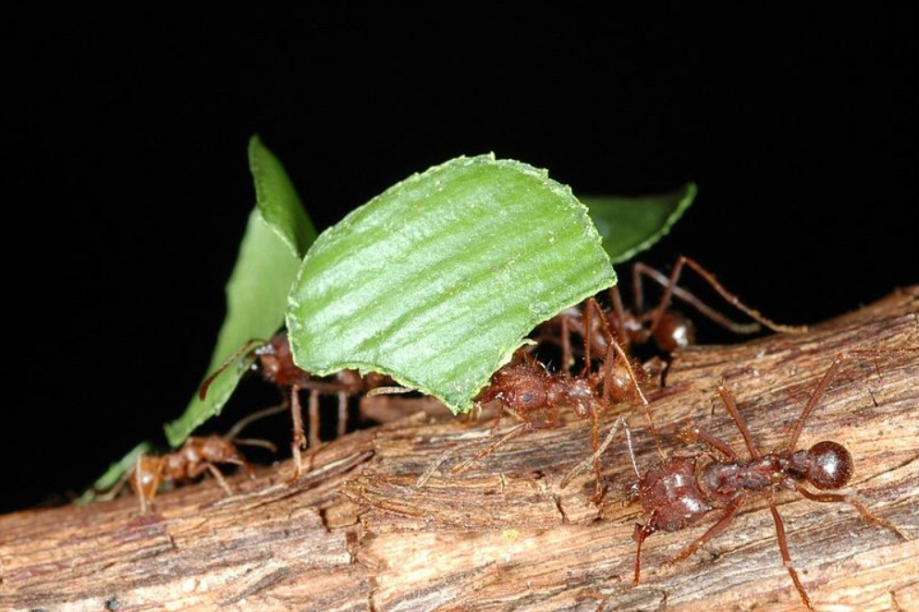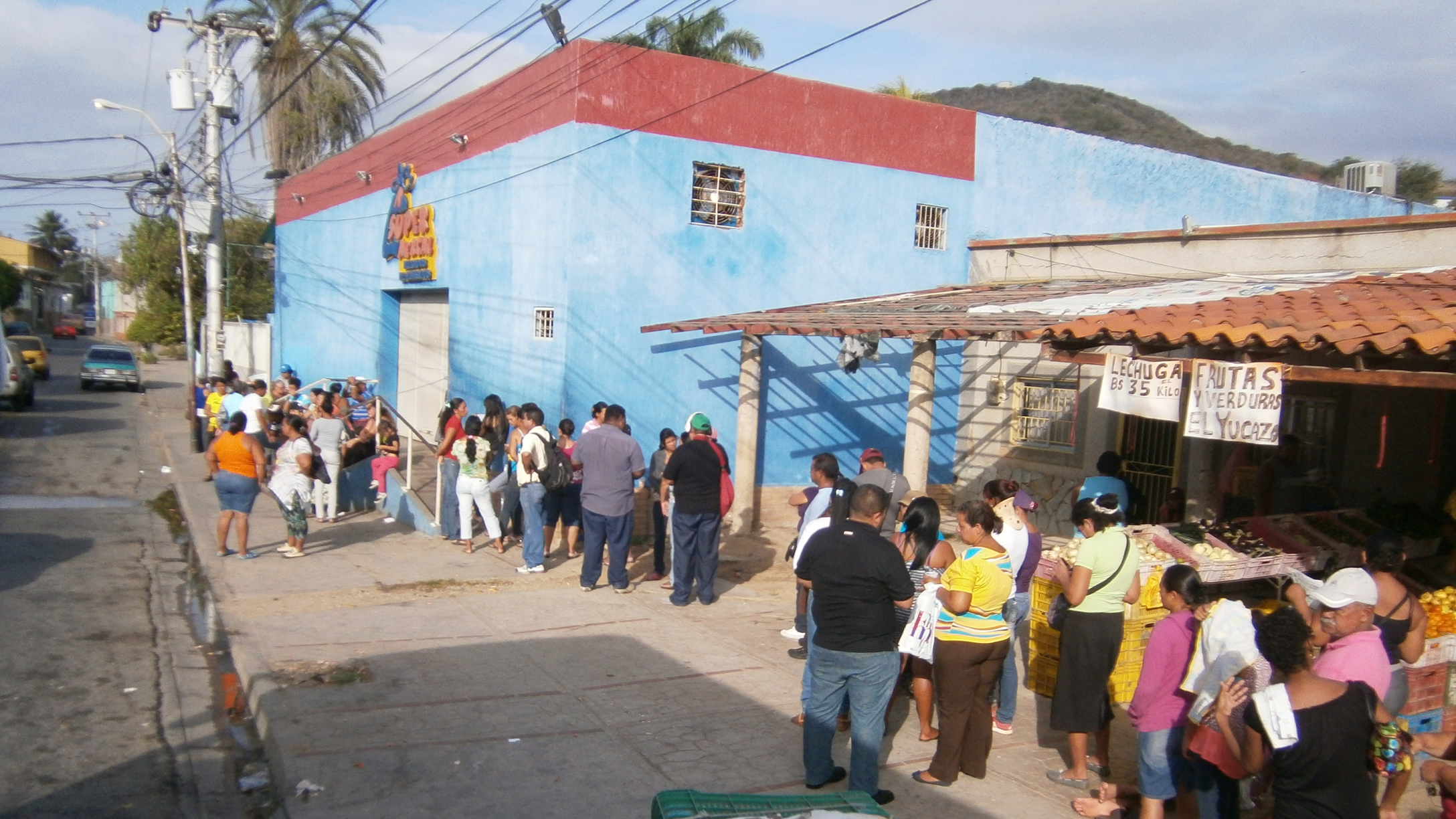During the first national blackout in Venezuela in March 2019, I heard street vendors denounced on the radio for taking advantage of the emergency. An irate father said he’d been charged $5 for the use of a blender to mix his baby’s formula; ice would cost an extra $5. Everyone knew how important it was to keep perishable products cold during the four days we were without electricity.
Venezuelans are supportive by nature. Many helped others without charging a penny, because they knew what a few extra dollars would mean to a working person. For example my friend with cancer gave away her medicine while she was in remission to someone who needed it urgently, even knowing she might require it again. But not everyone is in solidarity, when they see the possibility of earning a fast buck. That mentality has eaten away at the society in recent years, the long-festering consequences of the social, political and economic strategies of successively corrupt Venezuelan governments over a period of many decades.
Since 2014, my family and I have often had to buy basic products like pasta, rice or even toilet paper at grossly inflated prices from informal sellers. We could have gotten angry about this, but at times the choice was between hunger and pride. In the days when we couldn’t find sugar in the supermarkets, my husband lost 44 pounds. He is not alone; the phenomenon is called the “Maduro diet,” and according to Encovi’s studies 64% of Venezuelans have lost about 24 pounds, due to the difficulty of finding certain foods.
The informal trade sector is a social and economic barometer for the reality of the Venezuelan population. The country’s unstable economy has driven many Venezuelans to unconventional forms of commerce. Massive inflation has hit ordinary citizens’ purchasing power hard, with prices rising and wages effectively shrinking at the same time. The economic opportunity presented by this scarcity, in tandem with strict price controls on basic goods that can readily be sold at enormous profit, either on the street or in nearby Colombia, has created an economic monster. Ecoanalítica, a Venezuelan consulting firm, estimated that two thirds of people waiting in line at a supermarket would re-sell the goods they’ve bought, according to a 2015 report at Euromonitor International.
Since the shortages took hold in 2012, it’s been common to see food and medicines offered by informal workers on the streets and online. From one perspective, the informal market in Venezuela has stepped in to replace a substantial part of the country’s broken economy. According to figures from the National Statistics Institute, by the end of 2018 more than 40% of the active working population was performing some role in the informal economy.
No guild, profession or government job in Venezuela can currently pay a salary adjusted to reality, and so nobody can live peacefully in the current situation. Whether university students, professionals or civil servants, many are selling some kind of merchandise on their own simply to make ends meet.

“Bachaco” is the Spanish name for leaf-cutter ants who carry massive burdens in order to gather materials to build their nests. Hence “bachaqueros,” the colloquial word for informal merchants who stock up on price-controlled goods for resale.
As the crisis escalated in 2013-14, supermarkets began to sell basic necessities according to the final numbers appearing on one’s ID card, on only one or two days a week for each person. At that point bachaqueo took hold: informal merchants organized themselves to stand in the queues every day, like professional ticket scalpers, in order to buy goods to resell at high prices. I was impressed the first few days when I saw the number of people in the streets near the markets—the queues could go around the block several times.
Families began to struggle to acquire enough food for themselves. Worse, the bachaqueros did not take control of only the basic items; it became impossible to buy disposable diapers, baby food, formulas, personal hygiene products and medicines, as well.
When my niece was born in 2013, a big part of the preparation for her birth was the purchase of diapers. Supermarkets only allowed one package per person. The situation was also complicated by ID card requirements, so my brother had, for example, the right to queue on Monday, my mother on Tuesdays, my husband on Fridays, and me on Wednesdays. We spent the whole week queueing to collect enough diapers for just a few weeks.
The bachaqueros were able to greet the dawn in the queues, and thus, to monopolize every category of goods. The first places were always occupied by them. Goods might disappear before we managed to buy anything. And buying from the bachaqueros directly, rather than waiting in line, meant paying at least double.
After only a few months it became impossible to buy diapers and certain other items in the same way. The bachaqueros ended up owning the supermarkets. It was common to see them camping nearby, damaging whatever was in their path, as in a town without law.
With more conventional pricing of products regulated by the government—and thus less incentive to queue up to buy underpriced goods—items began to reappear on supermarket shelves, and the bachaqueo era was partially ended, which meant that the informal economy would mutate again.
Now Venezuelans had a new problem: inflation and hyperinflation put a significant squeeze on household finances, so that purchases could no longer be made in the quantities of the past.
Informal traders adapted, and it is now common to buy products from them in minutes quantities. Larger packages of sugar, flour, coffee and other necessities are divided into quantities of a few hundred grams or a little more, so that people can buy daily or weekly and fit into their pocket.
I have reduced my own purchases to a smaller variety of items, with fewer fruits and vegetables, trying to fool myself. We risk problems with quality control, because we cannot verify that any given product has not been adulterated. For example, coffee is sometimes mixed with fillers such as black beans, to yield the unregulated merchants greater profits.
For many years one would pay informal vendors in cash, using bolivars, the Venezuelan fiat currency. When cash became scarce a couple of years ago, street vendors began using point-of-sale devices to swipe debit cards, often accepting bank transfers or, more recently, mobile payments.
Today, with prices on the constant rise, many sellers calculate in U.S. dollars as a safeguard against volatility. Some Venezuelans were already holding dollars in order to protect themselves against inflation, and they began to pay their bills with dollars. Various informal establishments and traders now accept foreign currency on a regular basis; a great change for a country which for decades had banking controls with tightly enforced quotas for foreign exchange.
Worn or even slightly damaged U.S. paper currency is not accepted in the informal market, which can mean the loss of vital money. Since there are no bureaux de change, it is impossible to replace damaged currency. Just a few weeks ago, one such merchant refused to accept a twenty-dollar bill from me, though the tear in it was practically imperceptible; I had to find someone to change the bill as a personal favor.
The dollar is reaching beyond the organized informal trade. In the last few weeks, street vendors who sell products in traffic queues have begun offering, for example, sweets for $1.
My mother and my husband both got sick a couple of years ago. Outside the public hospitals, you can see the bachaqueros selling everything from gauze to medicines. Without reliable data, quality guarantees, expiration dates or controlled storage conditions, we can’t risk buying needed supplies, so we have to go to pharmacies and ask friends to supply the treatments.
With the drop in pharmaceutical production, it has become difficult to meet the needs of the entire population for medicines. Currently, many drugs come from Colombia, brought in directly by informal traders. These vendors are routinely breaking the law. Although one can find sealed medicines, even these aren’t guaranteed to comply with health regulations.
Medicine is one sector where the bachaqueros still operate freely. The illicit pharmaceutical trade is conducted right under the authorities’ noses, and although sometimes contraband goods are seized and people punished, enforcement is too lax and too infrequent to curb the trade.
The medical crisis provides a multifacted picture of the crisis in Venezuela. The informal markets have provided a way for people to get desperately needed supplies, and they have also mutated to become a big part of the problem. Public health is deteriorating at a rapid rate; for example malaria, which has been on the wane elsewhere in Latin America, has risen sixfold in Venezuela in the last seven years. Price gouging is common, even on essential medicines for specific treatments which, if not administered in time, can trigger the aggravation of an illness, and even death. In this way, the informal markets have transcended economic problems, contributing to a more general moral and social decline.
The aggravated economic and social situation has provoked a great migration; according to data from the United Nations, more than 4 million Venezuelans have left the country looking for better life options. Many of them have had to accept work unrelated to their profession. Some of my friends have had to clean houses, work as truck drivers, or be shopkeepers despite having one or two college degrees.
Their sacrifice is rewarded by knowing that they are improving their life chances, and that they can send money to their families in Venezuela to help them survive with food, money or medicine. Meanwhile the economy continues to adapt, the diaspora has provided a change by sending remittances, which has made dollars circulate in the streets, allowing people not to have to depend so much on a bolivar that declines in value each day.






